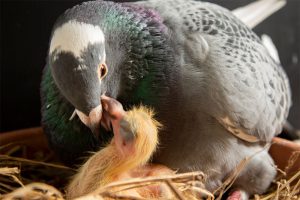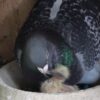
Top 5 Breeding Mistakes to Avoid in Racing Pigeons
Breeding high-performance racing pigeons isn’t just about pairing up your best birds and hoping for the best. Successful pigeon breeding is a strategic, year-round process requiring careful planning, proper nutrition, and a strong understanding of pigeon genetics. Unfortunately, many fanciers unintentionally make mistakes that can drastically reduce fertility, impact squab health, and diminish race performance in future generations.
In this post, we’ll explore the top five breeding mistakes to avoid in racing pigeons—and how to prevent them with proven techniques, proper supplementation, and expert planning.
1. Ignoring Genetic Compatibility
One of the most critical but often overlooked aspects of racing pigeon breeding is genetic compatibility. Many fanciers select pairs based solely on racing results or physical characteristics like feather quality or body type. However, breeding without evaluating lineage and genetic health can result in inbreeding depression, low fertility, and long-term performance issues.
Common Issues:
- Inbreeding leads to reduced immune function
- Weak offspring with lower race endurance
- Fertility decline over multiple generations
Recommended Fix:
- Maintain comprehensive breeding records
- Use pedigree analysis tools or software to avoid inbreeding
- Crossbreed carefully to preserve both traits and vitality
2. Overbreeding Without Recovery Time
Breeders often push their birds too hard by trying to get as many rounds as possible each season. Overbreeding, especially without proper rest, can seriously impact fertility and reduce the quality of squabs.
Common Issues:
- Stress and physical exhaustion in hens and cocks
- Reduced egg-laying frequency
- Poor egg viability and hatch rates
Recommended Fix:
- Create a seasonal breeding plan that includes rest periods
- Allow at least a 4-6 week break between breeding rounds
- Support breeders with recovery supplements like Recup Fast to restore nutrients and strengthen reproductive systems
3. Neglecting Pre-Breeding Conditioning
Jumping into breeding season without conditioning your birds is like entering a marathon without training. If your breeders aren’t in top shape, you risk poor fertility and weak hatchlings.
Common Issues:
- Reduced fertility in both sexes
- Low hatchability and poor squab survival
- Increased vulnerability to infections
Recommended Fix:
- Begin conditioning 4-6 weeks before pairing
- Provide supplements like Final Fond or Final Sprint to boost energy, immunity, and reproductive health
- Include probiotics and vitamins in the diet to prepare the digestive and immune systems
4. Inadequate Loft Hygiene
Loft hygiene plays a critical role in breeding success. A dirty loft can become a breeding ground for bacteria, viruses, and parasites, all of which compromise the health of your breeders and their young.
Common Issues:
- Disease outbreaks such as canker, salmonella, and E. coli
- Parasite infestations affecting energy and growth
- Contaminated nest boxes leading to squab mortality
Recommended Fix:
- Clean nest bowls, perches, and floors weekly
- Disinfect the loft using safe, natural sanitizers
- Maintain good airflow and dry bedding to minimize pathogens
5. Failing to Monitor and Adjust Nutrition
Breeding pigeons have different nutritional needs than birds in racing, rest, or molting phases. Applying a one-size-fits-all diet during breeding is a costly mistake.
Common Issues:
- Nutritional deficiencies in protein, calcium, or vitamins
- Weak egg shells or egg binding in hens
- Poor growth and low immunity in squabs
Recommended Fix:
- Feed a breeding-specific mix rich in calcium and protein
- Add Carbo Plus for sustained energy during mating and egg-laying
- Use fertility-focused supplements tailored for breeding seasons
Final Thoughts: Breed for Long-Term Loft Success
Avoiding these top five breeding mistakes can significantly improve your racing pigeon program. It’s not just about producing birds quickly; it’s about producing high-quality, healthy pigeons with the genetic and physical foundation to win.
By focusing on genetic diversity, rest and recovery, pre-breeding conditioning, loft hygiene, and tailored nutrition, you’ll set yourself up for successful breeding seasons year after year.
Want to take your breeding game to the next level? Explore our full range of racing pigeon supplements including Final Fond, Final Sprint, Recup Fast, and Carbo Plus—designed to support every stage of your pigeons’ performance and breeding journey.


